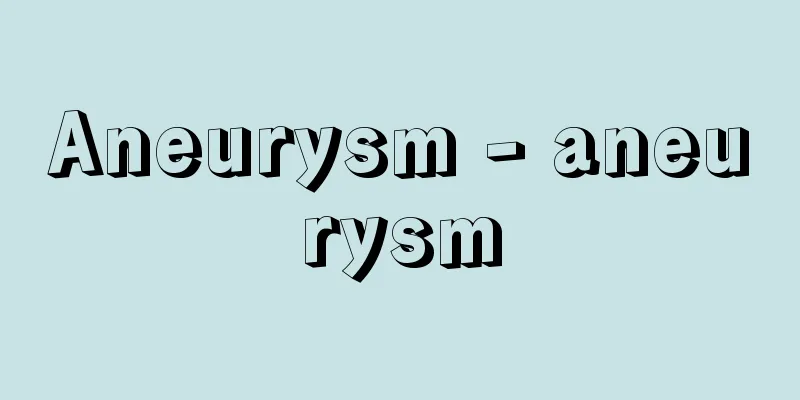Webber, H.J.

|
…The word clone originally comes from the Greek word klōn, meaning twig. Since all twigs from a single tree have the same genetic qualities, HJ Webber was the first to use the word in the biological sense described above (1903). In nature, a group of descendants produced by asexual reproduction (vegetative reproduction) are copies with the same genetic qualities, and are therefore clones. … *Some of the terminology that mentions "Webber, HJ" is listed below. Source | Heibonsha World Encyclopedia 2nd Edition | Information |
|
…クローンとは,元来はギリシア語klōnで〈小枝〉という意味である。1本の木から出る小枝は,なん本あっても遺伝的に同じ資質をもっていることから,ウェッバーH.J.Webberが初めてこの語を上のような生物学的意味をもつものとして使った(1903)のに始まる。 自然界において,無性生殖(栄養生殖)によって作られる一群の子孫の生物個体は,すべて同じ遺伝資質をもったコピーであって,クローンである。… ※「ウェッバー,H.J.」について言及している用語解説の一部を掲載しています。 出典|株式会社平凡社世界大百科事典 第2版について | 情報 |
Recommend
harpsichord
A plucked string instrument with a keyboard (see s...
Queensland [State] - Queensland
A state in northeastern Australia. The Great Divid...
Kyokudo Nanryo
A lecturer. The name of Kyokudo was originally &q...
budget line
...In other words, if you spend your entire budge...
Cinclus cinclus (English spelling) Cincluscinclus
… [Takashi Saito]. . . *Some of the terminology t...
Indriya - Indriya
…The Chinese translation of the Sanskrit word ind...
Aepyprymnus rufescens (English spelling) Aepyprymnusrufescens
...They have a large brood pouch on their abdomen...
Silver lobster - Silver lobster
...In Japan, it is found in the high mountains of...
Denikin - Denikin (English notation) Антон Иванович Деникин / Anton Ivanovich Denikin
A military officer of Imperial Russia. In 1916 he...
Ethylenediaminetetraacetic acid (English spelling)
…An abbreviation of ethylenediaminetetraacetic ac...
Bandar-e Pahlavī (English spelling)
...Elevation -15m, population 55,978 (1976). In 1...
ACD - Automatic Call Distributor
Automatic call distribution device. A device that ...
Codex (English)
A booklet, as opposed to a scroll. It also refers ...
Anschluss (English spelling)
A German word meaning "union," specifica...
Lead acid battery - Namarichikudenchi (English spelling)
A typical storage battery that uses porous lead d...









